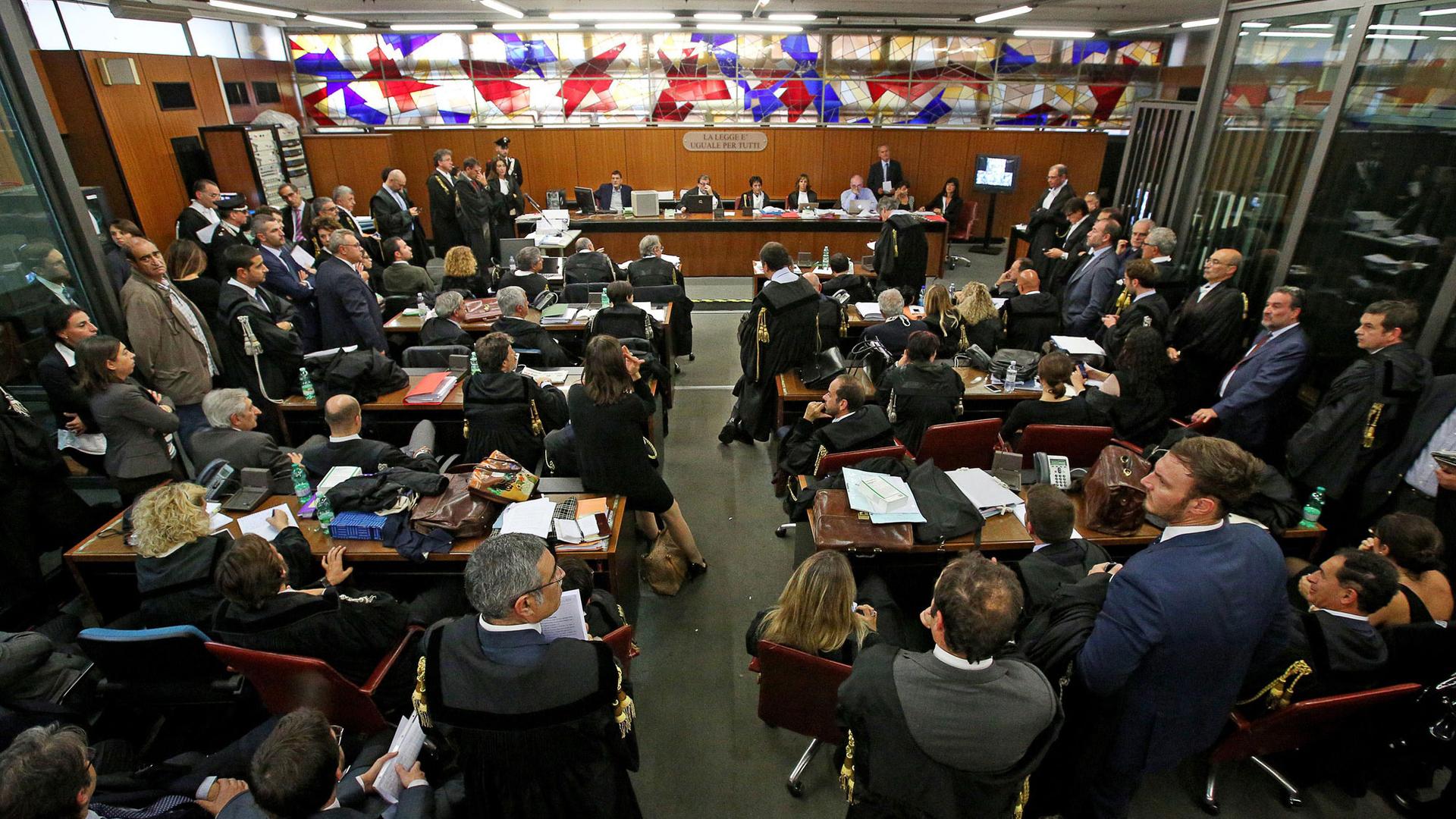This analysis was featured in Critical State, a weekly foreign policy newsletter from Inkstick Media. Subscribe here.
The Italian Constitution was adopted in 1947, years after the overthrow of Benito Mussolini’s fascist state at the hands of liberating allies and Italian anti-fascist partisans. Enshrined in that constitution, and enforced in the decades since, is a principle of judicial prosecution. Because all cases were pursued, the venue where the cases are tried and charged matters a great deal, as the discretion of the prosecutor manifests not in case selection but instead in sentencing and rigor of pursuit.
In “Prosecutorial Gatekeeping and Its Effects on Criminal Accountability: The Roman Prosecutor’s Office and Corruption Investigations in Italy, 1975–1994,” Lucia Manzi looks at the particular structural role of the Rome prosecutor’s office.
This office, as the jurisdiction overseeing the seat of government, was able to use gatekeeping to shield politicians from corruption charges up through 1991. Then, following a change in the judicial philosophy of the prosecutor in charge of Rome, an end to those protections cleared the path for the Mani Pulite (“Clean Hands”) corruption investigation, which overturned the stable coalition system of the Cold War and led to the political reality of the present.
“Due to its geographical location at the heart of the country’s capital, where all government institutions and political parties’ headquarters reside, the Roman prosecutor’s office could potentially claim jurisdiction over most, if not all, criminal violations committed by elected officials and political personalities,” Manzi writes.
The Italian judiciary is structurally independent and responsible for the appointment and advancement of its members. After the 1970s, this was by seniority, but prior to that, it hinged on evaluation by superiors, encouraging ideological homogeneity among the profession.
Confounding the hopes of those who would want to prosecute corruption was a long-standing belief among the conservative elite of the Italian legal establishment that shielded government officials from the investigation, starting with a refusal to hold fascist officials accountable under laws punishing “particularly cruel barbarity” passed after the overthrow of fascism.
This meant, Manzi writes, “the use of gatekeeping powers to shield state agents from accountability followed a much broader logic, rooted in Italian legal positivism’s traditional hostility toward the use of investigative powers against the state.”
Manzi details two prosecutions of corruption scandals by the Milan office. A 1981 look into corruption by the Italian Socialist Party, a regular feature of Italy’s governing coalitions, unearthed deeper webs of connections and Swiss bank accounts for payouts. But, looking to shield the state from accountability, the Rome prosecutor’s office claimed jurisdiction, blocked the Milan team from requesting Swiss records, and steered the investigation from above.
In 1992, the Milan team pursued a similar set of leads under a different Roman prosecutor. Without interference from Rome, their corruption investigation was allowed to proceed, kicking off the start of a sweeping investigation that found all parties of Italy’s stagnant governing coalition entwined with bribery for contracts and other kinds of corruption.
Manzi concludes that the “preferences of the prosecutorial actors in charge of gatekeeping institutions may have massive implications for the quality of democracy and the rule of law.”
Related: Political theater: Part II
Critical State is your weekly fix of foreign policy analysis from the staff at Inkstick Media. Subscribe here.
